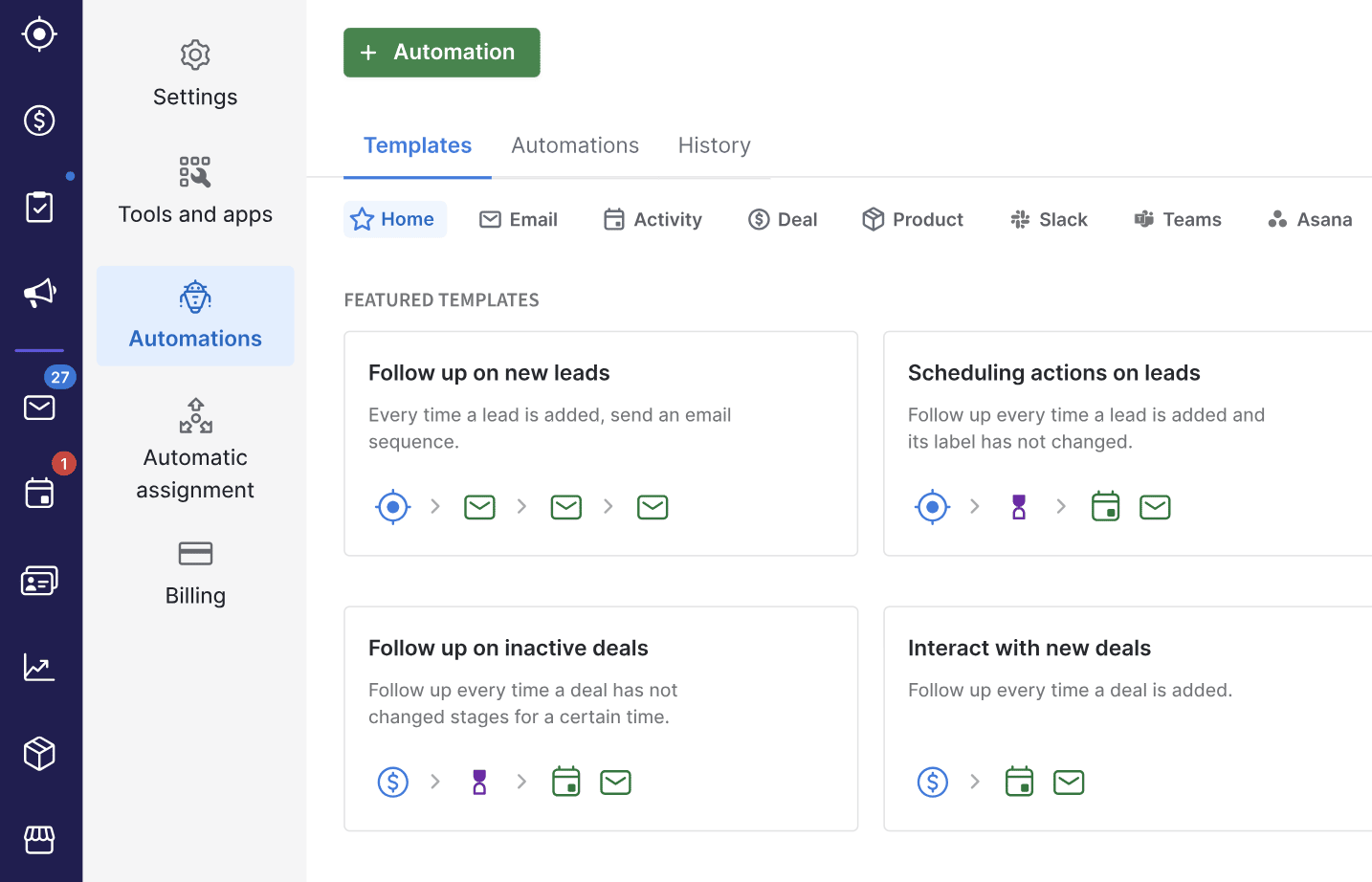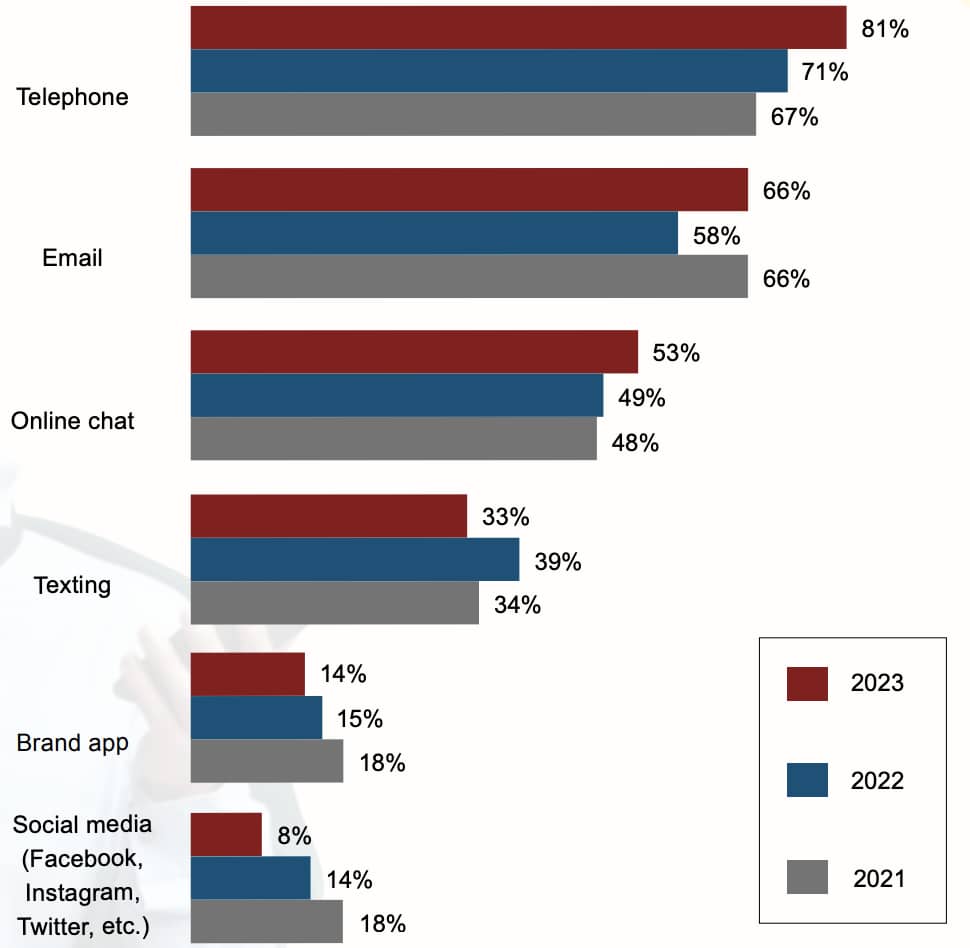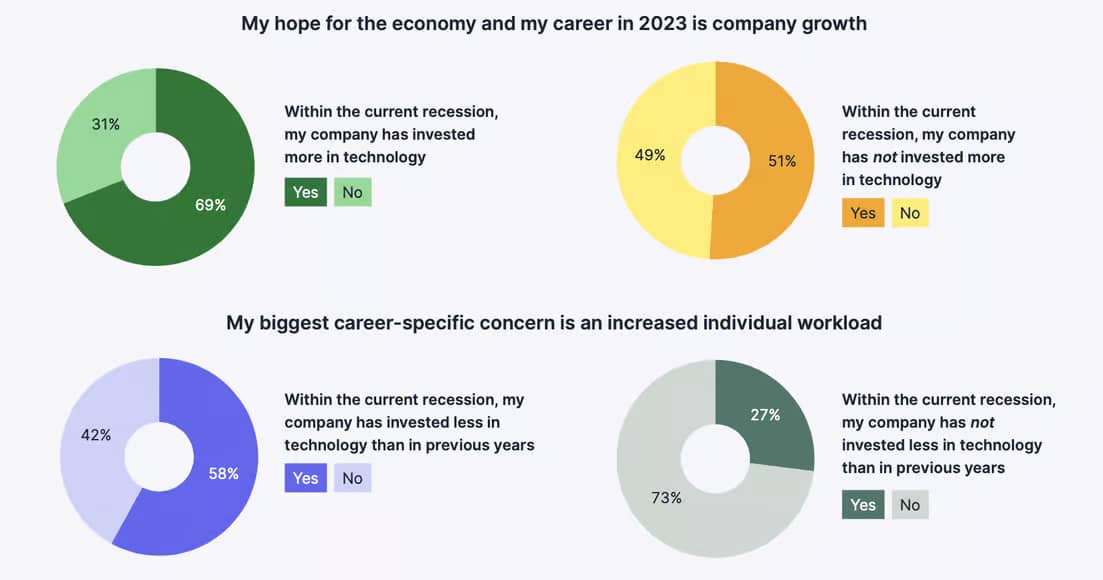Customer service is often thought of as post-sale customer support. However, every team member, including those involved before the sale, contributes to your brand’s customer experience (CX).
When sales reps improve their customer service skills, they serve leads better and build deeper relationships.
In this article, you’ll learn the top customer service skills your team members need, plus tips on how to help all front-line workers grow these skills.
What are the key principles of great customer service?
The key principles of customer service (CS) are foundational guidelines that help businesses provide outstanding customer support and care.
Understanding and implementing these principles can significantly enhance the customer experience, leading to higher satisfaction, increased loyalty and positive word-of-mouth.
Here are some of the core principles of great customer service:
-
Effective communication. Sales and customer service reps must be confident speakers and active listeners, as this will build strong relationships with prospects and customers.
-
Provide personalized service. Prospects and customers have more ways than ever to contact sales and customer service representatives. They must be ready to meet users where they want to communicate.
-
Give timely responses. Customers and prospects are busy. Supplying quick answers helps your audience solve their problems faster.
-
Offer proactive help. Customer support team members who anticipate needs will resolve issues faster and reduce the strain on call centers. When sales reps do the same, it reduces the interactions needed to close their deals.
-
Display product expertise. When customers and prospects have questions, reps must have the product knowledge and technical skills to help them and make the best recommendations.
To foster trust and improve customer relationships, nurture both the hard and soft skills that enable these principles.
Recommended reading

Mastering the art of customer service management
9 important customer service skills and attributes of successful teams
For customer-facing teams to be successful, each individual should develop certain skills that help them deliver consistently outstanding service.
Prioritize these interpersonal skills in hiring and training to help your team provide excellent customer service no matter where customers are in their buying journey.
Aim to build a team with these essential customer service skills.
Recommended reading

9 Types of customer service: Pros, cons and when to choose each one
1. Communication skills
Good communication skills help sales and support reps share information effectively, like explaining your product’s value and how it can meet the customers’ needs.
Clear communication plays a critical role in the customer experience, with many willing to leave brands when there’s too much of a disconnect. In fact, a Khoros study found that 65% of customers had switched to a different brand because of poor customer service.
On the other hand, the same survey found that 85% of consumers feel more loyal to brands that respond to and resolve their complaints.

Excellent customer communication is about more than just one-on-one interactions, though.
Businesses with good communication provide detailed information for users to make the best decisions, like listing accurate self-serve pricing details on the website and letting customers know how trial periods work upfront.
The book summary app Blinkist does this second example well, using automations to communicate with customers in the trial stage.
Blinkist’s in-app notification reminds users when the trial ends, reducing frustrations from automatic upgrade changes for users who forgot to cancel.

After implementing this change in user communications, Blinkist saw 4% fewer cancellations for the app and decreased complaints by 55%.
For non-app products, your team can use email automation to follow up with prospects. You can do this easily inside Pipedrive with the email marketing software add-on.
Here are some more ways to improve your sales team’s communication skills:
-
Record sales calls and give feedback, such as improving explanations or reducing pauses and filler words.
-
Provide teams with plenty of sales enablement material, so they have key information to hand when they need it.
-
Train reps on the psychology of persuasive language, such as learning to use positive language when dealing with customer questions (we’ll discuss this later).
Teach reps how to analyze tone of voice over written text to optimize responses and minimize frustration.
Recommended reading

10 reliable ways to delight the customer and amplify customer loyalty
2. Active listening skills
Active listening skills show speakers you’re engaged in the conversation and understand what they’re saying. Good active listening skills help reps recognize customers’ needs and personalize their service.
Body language expert Albert Mehrabian said in his book Nonverbal Communication:
Essentially, when it comes to in-person or on-camera communication, body language plays a key role in understanding what’s being said. Active listening skills are essential for noticing these body language cues.

Being an active listener combines reading verbal and non-verbal factors (such as tone and facial expressions) so that reps can better grasp customers’ wants and needs.
Adobe found that one of the top three reasons people stop engaging with a brand is that they don’t feel listened to, indicating that listening to and understanding customer needs is key for customer retention.
Teaching your team to become better listeners ensures customers feel heard when interacting with your business.
Here are some active listening techniques for your reps to master:
-
Allowing speakers to complete their thoughts before responding
-
Paying attention to their body language and tone of voice
-
Summarizing what the customer said and asking relevant follow-up questions
-
Asking open-ended questions to gather more information and resolve queries faster
Following these tips can reduce the chances of miscommunication and improve the quality of your customer service interactions.
3. Problem-solving skills
Sales and customer service agents must fully understand a prospect or customer’s problem but customers don’t always know how to articulate what’s wrong.
Problem-solving skills help sales reps identify the problem, empathize with the customer and develop a solution that satisfies their requirements.
Effective problem-solving strategies support reps in asking the right initial and follow-up questions to find the issue’s cause.

Even though “problem” is part of the term, customer service problem-solving skills can be applied in many situations, not just when addressing complaints. For example, problem-solving skills are involved when:
-
Listening to prospects and customers
-
Asking the right questions to get more information
-
Identifying a sales objection or hurdle
-
Determining which resources would be most helpful for the prospect
-
Anticipating future needs for customers to get ahead of issues before they come up
Let’s say a customer is in their trial period with your software. They’ve experienced an issue on the download page and contacted their sales representative for assistance.
The sales rep can use their problem-solving skills to resolve the issue quickly and painlessly by gathering the necessary information, analyzing the issue, offering solutions and following up to ensure the problem is resolved.
Here’s how to help your reps develop their problem-solving skills:
-
Thorough training and education to build their product knowledge
-
Practice scenario-based role-play
-
Learn how to problem-solve from mentors and shadowing other reps
-
Engage in critical thinking exercises, such as analyzing case studies and brainstorming solutions to common problems
Part of being a salesperson involves solving business-related and customer-related problems. Effective problem-solving skills ensure reps can find the best solutions to whatever happens.
Recommended reading

Hiring Salespeople: How to Create the Perfect Sales Recruitment Strategy
4. Conflict resolution skills
Sometimes, customers can let their emotions get the best of them, or be otherwise challenging. It’s inevitable that every customer-facing team member will experience a difference of opinion or extreme expectations.
Conflict resolution skills mean salespeople can handle the customer’s needs to find mutually agreeable solutions to the problem, complaint or query.

All the skills we’ve discussed so far are necessary components of conflict resolution.
Conflict resolution is closely tied to emotional intelligence (which we cover next) as it requires reps to keep their emotions in check, even when customer interactions are strained.
Soft skills and leadership consultant Richard Trevino II advises:
Here are some more ways you can nurture your team’s conflict-resolution skills:
-
Approach conflict with collaboration in mind so you’re working with the customer, not against them
-
External de-escalation training can be very useful for teams where conflict is a frequent issue
-
Practicing mindfulness or offering mindfulness app stipends can help your team learn to regulate their emotions
-
Analyze recorded customer calls or email responses and practice how to handle difficult situations in a safe environment
Conflict is a likely scenario for all customer service professionals at some point. Training team members on the best course of action for various situations can help preserve your customer experience and brand perception.
Recommended reading

How to write an apology for an email sent in error
5. Emotional intelligence
Emotional intelligence (EQ) involves being able to process and regulate your emotions and includes accurately interpreting others’ emotions.
Having a high EQ ensures that when times get tough, sales reps can keep their emotions in check and not let their feelings cloud their decision-making skills.
According to TalentSmartEQ, emotional intelligence is one of the strongest predictors of job performance. It found that 90% of top performers have a strong EQ and only 20% of low performers have strong EQs.
Sales and customer service reps with high EQs can better handle customer criticisms and complaints and de-escalate contentious situations.
A 2023 Journal of Propulsion Technology study found that 92% of sales executives and managers viewed emotionally intelligent salespeople as more likely to meet or exceed customer expectations.
Salespeople with high EQs can use empathy to upsell products or services to help the customer.
Here’s how to grow sales EQ at your company:
-
Teach your team how to give and receive feedback
-
Create a psychologically safe work environment where accountability and understanding are rewarded
-
Encourage reps to show genuine interest in their prospect’s needs to build positive first impressions
-
Help reps look for the deeper reasons why deals go cold or conflicts arise so they can be prevented in the future
Recommended reading

Psychological selling guide: How to better understand your leads
6. Using positive language
The ability to use positive language is an interpersonal skill that involves changing your words to communicate the same information with a positive spin.
How a sales rep frames what they say can impact how a customer or prospect feels during and after the interaction. Using positive language can change how a customer feels.
For example, how reps frame information can make a deal or a product more or less attractive depending on where they focus. Our brains are averse to loss. Positive language taps into our desires to avoid loss (“loss aversion”) since this is more important to our brains than getting a perceived gain.
Positive framing also taps into our brain’s autopilot features. “Heuristics” or mental shortcuts mean our brains prefer information that’s easy to understand.
We may also favor information that triggers an emotional response, which is called the affect heuristic.
Even if a sales rep or customer service agent doesn’t inherently have a positive attitude or mindset, you can teach them to use positive language when responding to customer issues.
For example, if a prospect asks if your product has a feature, avoid saying, “No, our tool can’t do that.”
Instead, your rep can answer honestly while framing the answer positively: “While our tool doesn’t have that feature yet, it’s helpful to know you’d find it useful. I’ll pass your message on to the product team and we can see about adding it in the future.”
In this example, you keep the conversation positive while showing them your team values their feedback and is working to improve the product based on customer needs.
Here’s how you can encourage positive language in your team:
-
Practice spinning negative phrases in a positive light
-
Include common positive phrases in your bank of sales enablement material
-
Be open to reps asking questions about the best way to talk about a common customer hurdle or objection
-
Brainstorm some key phrases that work in different situations
7. Time management skills
Time management means effectively planning how you use your time to ensure you can complete your work. It’s a crucial skill for CS reps when consumers care more about customer service speed than ever.
In fact, 64% of customers believe speed and responsiveness are as important as price when deciding where to purchase.
Khoros research echoes these findings, reporting almost two-thirds of US adults think brands that provide a stellar CX prioritize valuing customers’ time.
Sales and customer service representatives must manage their time effectively to ensure everyone receives accurate responses and information promptly. Otherwise, potential customers may look elsewhere.
When interacting with customers who need help, agents must identify when they’re best suited to the task or whether they should escalate the question to another team member. Consistently getting this right means agents will optimize both their time and the customer’s.
Sales automation tools can reduce the manual work behind planning your schedule and following up with prospects.
For example, here are four of Pipedrive’s Automation templates. These templates help users follow up on new leads and inactive deals, schedule lead action and interact with new deals.

Equipping your team’s customer relationship management (CRM) software with automation tools can help them stay focused while completing as many sales tasks as possible.
Here’s how your team can manage their time better:
-
Prioritize the tasks that need to get done today to result in more sales
-
Implement time-blocking solutions to reduce task switching (e.g., block out a particular time each day to check emails or restrict meetings to certain days)
-
Try “day theming” to focus the day on one type of task (e.g., follow-ups on Tuesdays, cold outreach on Wednesdays, etc.)
-
Minimize tools and physical distractions to increase the ability to concentrate
8. Product knowledge
Product knowledge means your team deeply understands how the product works and solves customers’ problems. It gives sales and customer service reps the technical expertise to answer relevant questions, make recommendations and resolve issues.
Imagine your product involves an application programming interface (API). Your sales reps need to understand what APIs are and how they work before they can sell to decision-makers at technology companies.
Demonstrating product knowledge in any customer service role gives prospects and customers confidence that your team knows what they’re doing, which can improve brand trust and loyalty.
Hard skills like these also make better customer service representatives who can upsell to boost revenue by confidently suggesting the best product or service combination.
Technical knowledge can also help reps answer questions quickly and accurately without asking someone else. At-the-ready product knowledge like this is crucial, with Khoros finding that 79% of consumers want a quick response after contacting a brand.
Customers can experience significant delays when reps have to search through multiple resources or ask others to answer questions. The faster a customer service representative can respond to a problem, the happier your customers will be.
How to boost your team’s product knowledge:
-
Incorporate product knowledge training in customer service team members’ onboarding (including the problem it solves, who it’s for and any other additional information)
-
Include customer service and sales reps in pre-launch discussions to gain insights and use this knowledge to sell the product as soon as it’s ready
-
Set up a demo account for experimenting to experience the product like a user
-
Arrange one-off training sessions to communicate product updates and changes
Recommended reading

How to Develop and Train Your Sales Team
9. Adaptability
Adaptability means being able to pivot when plans change or new circumstances arise. It’s an essential skill for customer service and sales reps because customer needs and the overall business landscape change constantly.
Traditionally, companies addressed complaints and queries through phone calls. Nowadays, customers use a mix of channels when contacting a company’s customer service department.
According to Hyken research, phone calls, email and live chat are the most popular contact methods. However, a small number of customers prefer texting, brand apps and social media.

Modern communication requires reps to develop beyond call center skills, switching between channels and adapting to the styles of each platform.
Some of the skills we’ve already discussed, such as communication and emotional intelligence, are beneficial for improving the adaptability of customer service agents. When reps are self-aware and can regulate their emotions, they can pivot faster and better.
How to improve your team’s adaptability:
-
Offer team members growth and development opportunities to upskill
-
Encourage reps to embrace new challenges and workplace changes to push them out of their comfort zones
-
Use role-play and mock calls to teach reps how to think on the spot and handle unexpected situations
Arrange problem-solving training sessions to practice facing unique challenges
Why does great customer service matter for businesses?
While improving customer service and optimizing the customer experience sound buzzworthy, these actions are not without merit.
For starters, company leaders who invest in exceptional customer service can keep customers longer and sell more. Businesses that prioritize their CX see an up to 23% increase in new customer acquisition and 12% repeat business.
Well-trained reps on the frontlines can also help to create these personalized, positive moments that build customer loyalty and increase retention.
It’s well-known throughout sales that even a slight increase in retention can positively impact your company’s bottom line. However, only if you track it consistently and effectively.
A 2022 McKinsey report found that:
The increase in revenue may depend on your industry, company size and other factors but studies suggest companies can charge a premium for a better customer experience. Gladly found that 72% of shoppers will pay more for a positive CX, indicating the relationship between the experience and a growing bottom line still holds.
When companies invest in CS across the entire customer journey, they can create loyal fans who bring in even more revenue when they share their experiences with friends and family.
The role of technology in providing better customer service
CRM systems streamline prospect and customer data to support sales and CS reps who need to find information quickly to best help users.
By investing in technology, companies can increase response times and boost positive thinking among their team members.
Technology enhances team efficiency
Team members who aren’t buried in spreadsheets and data can provide better customer service. CRM automation gives team members back crucial time to focus on more complex requests.
Pipedrive’s 2023 State of Sales and Marketing report found employees at companies that haven’t invested in technology were twice as likely to worry about their workloads.

Let technology take the brunt of repetitive, low-importance tasks for reps and let them focus on providing a stellar customer experience.
Technology improves workplace positivity
Knowing that a positive mindset is crucial for all customer-facing representatives, companies can practice what they preach by giving employees the tools they need to succeed.
Download the State of Sales and Marketing report
Discover key statistics about sales and marketing success
For example, Pipedrive’s report also found that employees at companies with relevant technology display 18% higher hopes for company growth.

Team members who are happy in their roles and optimistic about the company’s future find it easier to implement skills like positive thinking and active listening, which translate into positive customer experiences.
Note: If you’d like more information about how a CRM improves customer service, check out our CRM services guide.
Customer Service Skills FAQs
- What customer service skills are most valuable?
- Can customer service skills be taught?
- How do you train good customer service skills?
- How do you evaluate customer service skills?
Final thoughts
Encouraging all front-facing roles to develop strong customer service skills can lead to better business outcomes, whether you’re a sales or customer service leader or the company CEO.
Beyond customer service training, developing sales skills and providing relevant sales training helps teams provide better services to prospects and means they can sell more.
